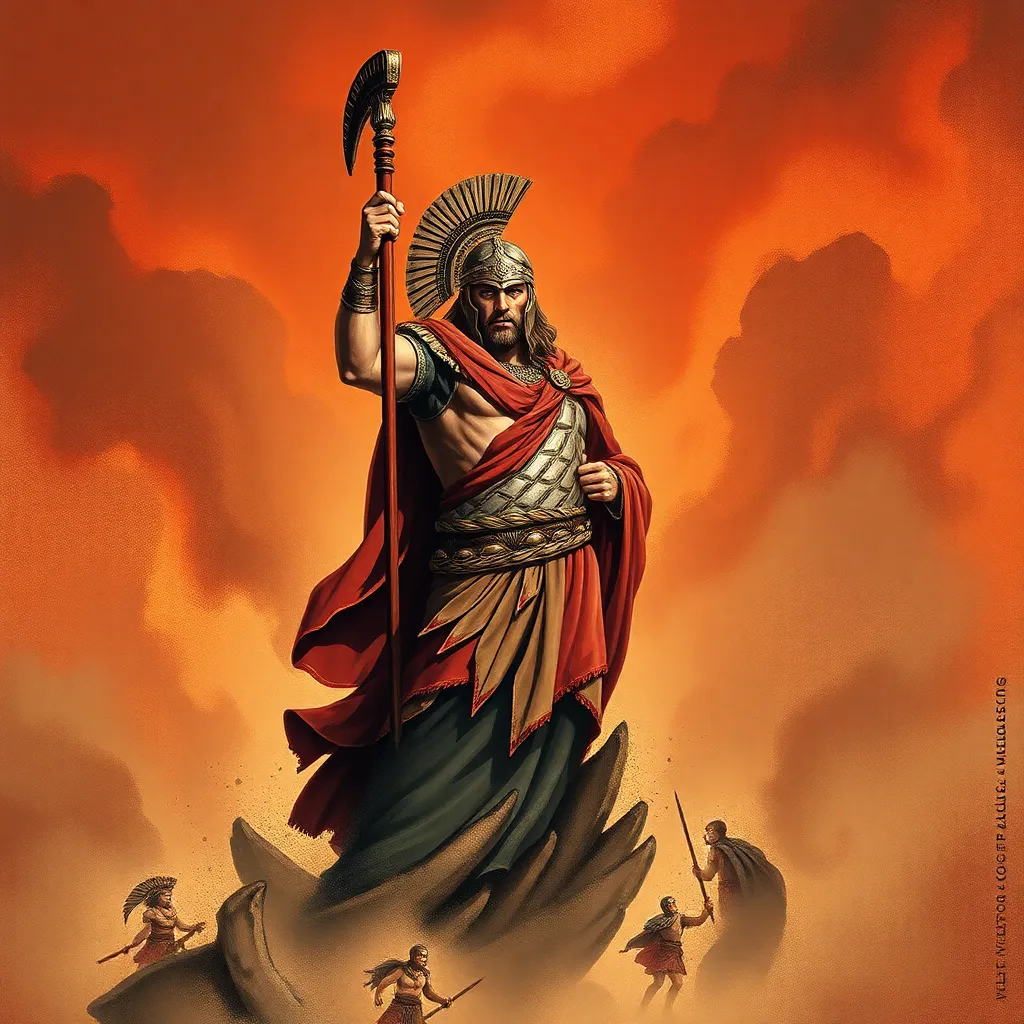The Character of Hector: The Tragic Hero of The Iliad
I. Introduction
“The Iliad,” attributed to Homer, is one of the foundational texts of Western literature, chronicling the events of the Trojan War and exploring themes of heroism, honor, and the capricious nature of fate. Among the myriad characters that populate this epic, Hector, the prince of Troy, stands out as a quintessential tragic hero.
This article delves into the character of Hector, examining his role in the narrative, his virtues and flaws, and the profound impact of his relationships and actions. Ultimately, Hector embodies the qualities of a tragic hero through his valor, complexity, and ultimate downfall.
II. Hector’s Role in the Trojan War
Hector is introduced in “The Iliad” as the foremost warrior of Troy and the eldest son of King Priam. His status as a prince endows him with both responsibilities and expectations, not only as a military leader but also as a protector of his family and city.
- Background of Hector: As a member of the royal family, Hector is acutely aware of the weight of his responsibilities.
- Leadership and Duties: He leads the Trojan forces with bravery and strategic insight, often at the forefront of battles.
- Contrast with Other Figures: Unlike Achilles, whose wrath and personal honor drive him, Hector’s motivations are deeply intertwined with duty to his city and family.
III. The Qualities of a Tragic Hero
The concept of a tragic hero is central to classical literature, often characterized by noble stature, a tragic flaw, and a downfall that evokes pity and fear.
- Noble Traits: Hector exemplifies courage, loyalty, and a commitment to his family and city.
- Flaws and Vulnerabilities: His fierce dedication can lead to reckless decisions, particularly in his confrontations with Achilles.
IV. Hector’s Relationships and Motivations
Hector’s relationships are pivotal to understanding his character and motivations. His marriage to Andromache and his role as a father to Astyanax highlight his humanity amidst the chaos of war.
- Family Relationships: Hector’s bond with Andromache is characterized by love and concern for her safety, revealing his softer side.
- Motivations in Battle: His desire to protect his family and honor drives him into battle, creating a conflict between personal desire and duty.
- Themes of Duty vs. Desire: Hector often struggles between his responsibilities as a warrior and his longing for peace with his family.
V. Key Moments of Valor and Defiance
Hector’s bravery is showcased throughout “The Iliad,” with several key moments illustrating his heroism and defiance against overwhelming odds.
- Courageous Battles: Hector’s encounters with Greek champions display his formidable combat skills and fearless nature.
- Defiance Against Achilles: His willingness to confront Achilles, the greatest Greek warrior, epitomizes his courage and sense of honor.
- Significant Speeches: Hector’s speeches often reflect his inner turmoil and commitment to his ideals, resonating with both his men and the audience.
VI. The Tragic Downfall of Hector
Hector’s end is marked by the inexorable forces of fate and the whims of the gods, which play a crucial role in his demise.
- Role of Fate: Despite his heroism, Hector cannot escape the fate that has been foretold for him, a core element of his tragic narrative.
- Pivotal Moments Leading to His Death: Key decisions and moments of hubris contribute to his vulnerability against Achilles.
- Emotional Implications: Hector’s death evokes profound sadness, reflecting the moral complexities of war and the loss of a noble warrior.
VII. The Legacy of Hector
Hector’s character leaves a lasting legacy in “The Iliad” and beyond, impacting how he is viewed by both the Trojans and Greeks.
- Portrayal by Others: Characters in the epic recognize Hector’s valor, often contrasting him with the more selfish motivations of other warriors.
- Significance of His Death: Hector’s death serves as a turning point in the war, demoralizing the Trojans and emboldening the Greeks.
- Impact on Literature: Hector’s complexity and tragic arc resonate throughout literature, influencing portrayals of heroism and tragedy in later works.
VIII. Conclusion
Hector’s journey in “The Iliad” encapsulates the essence of a tragic hero. His noble qualities, combined with his flaws and vulnerabilities, create a character that elicits both admiration and pity.
Through Hector’s story, themes of honor, fate, and humanity emerge, reflecting the complexities of the human experience. His character remains relevant in contemporary discussions of heroism and tragedy, reminding us of the delicate balance between duty and personal desire in the face of insurmountable odds.




